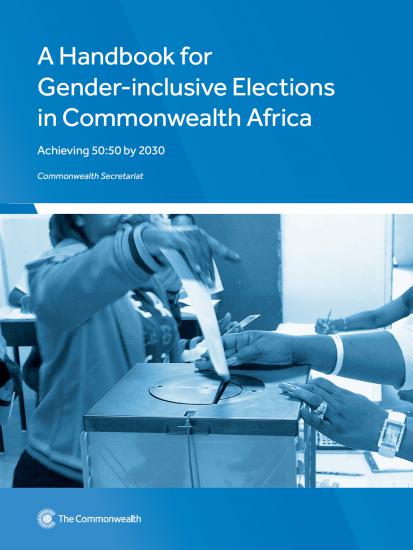A Handbook for Gender-Inclusive Elections in Commonwealth Africa: Achieving 50:50 by 2030
Synopsis
The Commonwealth is far from achieving gender equality when it comes to women in political decision-making roles. Although Commonwealth Africa has some of the best-performing countries in this context, on average women’s representation is still only 23.3 per cent.
Elections are a critical process through which political leadership can be accessed. However, for gender inclusiveness to become a reality, it is necessary to specifically address the hurdles to women’s participation in all three stages of the electoral cycle, the pre-electoral, electoral and the post-electoral periods.
A Handbook for Gender-Inclusive Elections in Commonwealth Africa: Achieving 50:50 by 2030 reviews the systems, legislation and best practice that will need to be implemented and effectively monitored to get more women into politics and help to realise Sustainable Development Goal 5 – achieve gender equality and empower all women and girls.
Chapters
-
Foreword
-
Acknowledgements
-
Acronyms and Abbreviations
-
Executive Summary
-
Introduction
-
Normative Frameworks
-
The Legislature, Electoral Systems and Temporary Special Measures
-
Political Parties
-
Gender and Election Management Bodies
-
Civil Society
-
The Media and Social Media
-
Election Observers
-
Conclusions and Recommendations
-
Annex
-
Glossary
-
Bibliography

Published
License

This work is licensed under a Creative Commons Attribution-NonCommercial-NoDerivatives 4.0 International License.

